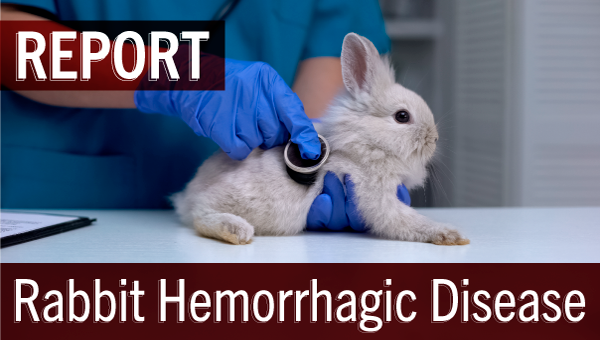
|
|||
|
In this Update:
Pennsylvania’s Utility Disconnections Spike Amid Energy Affordability CrisisBy Sen. Doug Mastriano (R-33) Pennsylvania earned a dubious distinction recently that underscores the economic pain wreaking havoc statewide for millions of residents struggling to make ends meet. We, along with four other states, account for 69% of all 3.6 million utility disconnections between January 2020 and December 2021, according to a report from the Center for Biological Diversity. It gets worse. The number of residents seeking payment plans for overdue utility bills spiked 158% this year alone, according to data from the Pennsylvania Public Utility Commission (PUC), amid unprecedented increases in energy costs doomed to climb even higher in the coming months. Just 1% of the roughly 10,700 customers seeking service reconnection got approved for these plans – and only if their credit reports and payment histories passed muster. The process can take as long as seven days, during which times service could remain shut off. Electric companies disconnected more than 108,000 residents through June, representing a 10% increase over 2021. Even worse still, the PUC’s income limits for preventing shut-offs in the colder months mean customers earning more than $14 per hour don’t qualify for relief. A Wall Street Journal analysis from December 2020 purports roughly half of families – of whom the report considers “middle class” – make between $26,000 and $122,000 annually. That means the vast majority don’t fall under the PUC’s automatic shut-off moratorium and must overcome often insurmountable financial hurdles and additional charges to restore service during the dead of winter. It’s a recipe for disaster that will cause an untold number of preventable deaths and seal a fate many lawmakers, including myself, warned of when Gov. Tom Wolf began implementing short-sighted environmental policies via executive fiat. The worst offender of Wolf’s climate legacy is the Pennsylvania Department of Environmental Protection’s hurried effort to join the Regional Greenhouse Gas Initiative (RGGI). The program uses carbon taxes to artificially limit emissions from the power sector, awarding the Wolf administration brownie points among the progressive arm of the Democratic party while saddling utility customers with skyrocketing electricity costs during an unfolding economic crisis. Earlier this year, the Independent Fiscal Office’s analysis confirmed RGGI would cost nearly four times more than the DEP first projected, quadrupling energy costs for utility companies. Despite the pause on Pennsylvania’s entry into RGGI amid a legal challenge, electric suppliers said the program’s impact accounted for some of the double-digit rate increases implemented on June 1. It’s important to note here that the Center for Biological Diversity said this “massive wave” of power shut-offs across the country predated Russia’s invasion of Ukraine, though the resulting volatility in oil and gas prices only made utility bills more unaffordable. The report also pointed to a dozen companies that instigated over 3 million disconnections in 2020 and 2021 that then increased shareholder payouts by $1.9 billion. At least two of those suppliers, Exelon and First Energy, operate in Pennsylvania. Colder weather is right around the corner and so, too, are guarantees that energy costs will keep climbing. Geopolitical instability coupled with skewed energy policies at the state and federal level mean residents will struggle to heat their homes and keep the lights on this winter. All the while, shareholders will grow richer and their government friends will continue subsidizing tax breaks for greener technologies – like electric cars and solar panels – that few can afford. It’s unconscionable that electricity rates in Pennsylvania, one of the nation’s top energy producers, have grown so wildly unaffordable that our residents can’t keep up anymore. The Wolf administration owns this policy failure and would rather sacrifice lives than admit its mistake. We must abandon RGGI and focus on policies that support Pennsylvania’s energy production, create jobs and raise incomes so Pennsylvanians can thrive – mot merely survive – in the years to come. Senator Doug Mastriano represents Pennsylvania’s 33rd district in Adams and Franklin counties. September is National Preparedness Month
September is National Preparedness Month, which serves as a reminder to take steps to prepare for emergencies and ensure that our homes, businesses and possessions are adequately insured. September is also when Pennsylvania experiences a higher risk of flooding due to hurricane and tropical storm activity in the Northeast this time of year. The state Insurance Department encourages property owners to consider purchasing flood insurance. Simple, low- or no-cost steps you can take now to prepare for emergencies include:
The Pennsylvania Emergency Management Agency can help you prepare for emergencies through Ready, Set, and Check! It includes an informative card that will help you with simple, yet important, steps to get started and track your progress. Assistance Available for Fire & EMS Companies to Help with Costs
First responders have until Oct. 21 to apply for assistance through the state Fire Company and Emergency Medical Service Grant Program. It helps fire and EMS cover the rising costs of training, equipment, recruitment, retention and more. The financial challenges facing first responders are especially serious for volunteer companies. Each new generation sees fewer volunteers, increasing the workload on those willing to step up. This grant program is one of the most important that the General Assembly funds each year and I hope it provides some relief to our local first responders. You can Help Track PA Cases of Rabbit Disease
The Pennsylvania Game Commission is asking the public to report any rabbit mortality events – defined as finding two or more dead hares/rabbits at the same location with an unknown cause of death – by calling 1-833-PGC-WILD or by using the online Wildlife Health Survey reporting tool at www.pgcapps.pa.gov/WHS. This comes after two cases of Rabbit Hemorrhagic Disease (RHD), which can cause internal bleeding and sudden death in rabbits, were identified in a Fayette County facility. The disease is considered an endemic in wild rabbits in 11 states and has been detected in domestic populations in 13 states. Domestic rabbit owners who have questions about this disease should contact their veterinarians, who in turn should immediately report suspected cases of RHD to the Pennsylvania Department of Agriculture’s Bureau of Animal Health. RHD is not infectious to people or domestic animals other than hares or rabbits. However, multiple dead or sick hares or rabbits can also be a sign of tularemia or plague, diseases that can cause serious illness in people. You can find more information on RHD here. Virtual Town Hall to Focus on Transportation Issues Veterans Face
The Pennsylvania Department of Military and Veterans Affairs will host the fourth in a five-part series of virtual Veteran Town Halls on Wednesday, Sept. 14, from 6-7:30 p.m. The town hall will focus on resources to assist veterans facing transportation issues. Attendees can participate by using this Microsoft Teams link. Participants will have the opportunity to ask questions during the program through the chat feature. Older veterans and those with a disability often have problems accessing health care because of not having proper transportation available to them. The town hall will outline community resources ready to provide veterans with transportation to and from the federal VA and other health care providers. Municipalities Can Apply Now for Grants to Improve Traffic Flow
A new grant program created by the General Assembly this year to reduce traffic congestion is now accepting applications from municipalities. The Traffic Signal Technologies Grant program is unique in that it is intended only for new technologies at existing traffic signals, including adaptive signal control technology, which adjusts the timing of lights to accommodate changing traffic patterns and ease congestion. No local matching funds are required. A pre-application form must be completed by Sept. 23. |
|||
|
|||




2024 © Senate of Pennsylvania | https://senatormastriano.com | Privacy Policy |




